- Joined
- Jan 28, 2011
- Messages
- 100,001















https://www.pcgamer.com/games/fallo...-declared-non-canon-by-todd-howard-it-sucked/
What it feels like to have your Fallout game declared non-canon by Todd Howard: 'It sucked'
The actual third game in the series didn't get much love from Bethesda.
Fallout 3 is not, in fact, the third Fallout game. That would be Fallout Tactics, a squad-based Brotherhood of Steel tactical RPG developed by Micro Forté, which appeared a few years after Fallout 2, in 2001. Despite being pretty well-liked by critics at the time, the way it deviated from its predecessor meant that it caught a lot of flak from the fans.
Lead designer Ed Orman, who we recently chatted to about his time in the Wasteland, remembers things getting pretty heated. "There was a minority I remember seeing on there who were like, 'Hey, it's a pretty good game. I like what they've done to improve these things about Fallout.' But the vast majority were like, 'This isn't a Fallout game. This is not Fallout 3. You screwed up the lore here, here and here. You put hairy deathclaws in, you’re not using charisma properly and all of those things.' And so there was a huge amount of negativity within the fanbase."
Bethesda faced a similar backlash from the diehards when it took on the challenge of creating Fallout 3. So you might have imagined that the studio would see Micro Forté as a kindred spirit, another developer who went through a similar trial. That was unfortunately not evident when, in 2007, Todd Howard essentially gave Tactics, along with the 2004 ARPG Fallout: Brotherhood of Steel, the boot.
"For our purposes," he said, "neither Fallout Tactics nor Fallout: Brotherhood of Steel happened."
"It sucked," says Orman. "You don't want to be told that what you've done is non-canon. By the time he said that I had a lot of distance from this, so it wasn't heartbreaking or gut-wrenching—it was just like, 'Oh man. You didn't have to officially say it, we could have existed in this weird quantum state where it was kind of part of things.' But the way things go now, with the reinterpretation of IPs and the retelling of stories—and especially with the creation of the TV show, where it's existing in the universe, but they're taking liberties and they may have to make adjustments to make that world work for TV—lots of ideas are going to get shuffled around. There have been little bits and pieces of Tactics which you can see kind of are canon now, just through the back door over time. And that's good enough for me. I don't need anything more than that."
One of those things that slipped through the back door was the Prydwen, the Brotherhood of Steel's airship as seen in Fallout 4 and the Fallout TV series. While the Prydwen is a Bethesda creation, it's hard not to look at its zeppelin-like design and see it as directly inspired by the Brotherhood zeppelin of Fallout Tactics.
"They are a logical thing to introduce in the universe, especially for the Brotherhood," says Orman. "If they're not just flying vertibirds, it makes sense they have a kind of aircraft carrier thing, and you can't really travel on the roads. So I think an airship makes a lot of logical sense for the universe. So maybe that's why they came up with it. But I'll just sit here quietly and think, ‘Yes, it's because we had them in Fallout Tactics', and I'll be happy."
A Fallout Tactics sequel was initially planned, but poor sales scuppered its future. Orman would love to see the original gain a new lease on life, though. "I'd love to see a retelling of it. If somebody did a remake of Tactics in Fallout 4's engine, you could just adjust a few things and fix some of the lore problems, I would be fine with that. It's not sacrosanct to me, if that brought it in line." But he's content knowing that some of Fallout Tactics is still living on, in a way. "Every time these things make that leap, it's nice to know that they are at least still drawing on that background. And that Tactics is just holding on, being interpreted usefully in some way."
Keep an eye out for our full interview with Orman, where we dig into the making of Fallout Tactics.













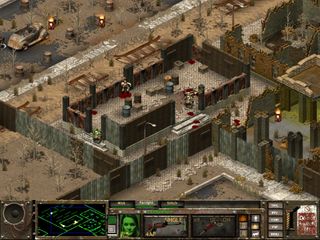
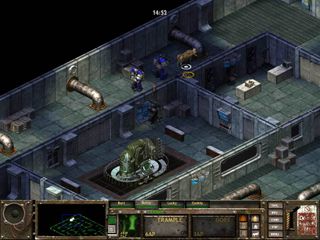
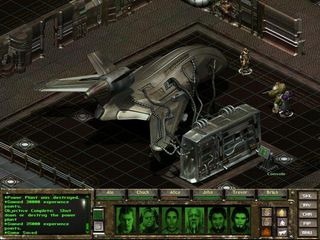
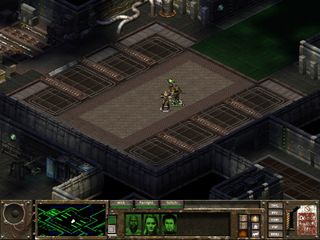
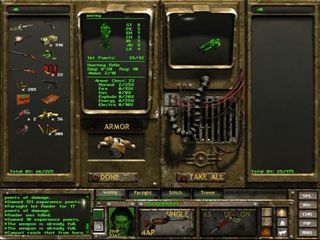


![Glory to Codexia! [2012] Codex 2012](/forums/smiles/campaign_tags/campaign_slushfund2012.png)
![Have Many Potato [2013] Codex 2013](/forums/smiles/campaign_tags/campaign_potato2013.png)



